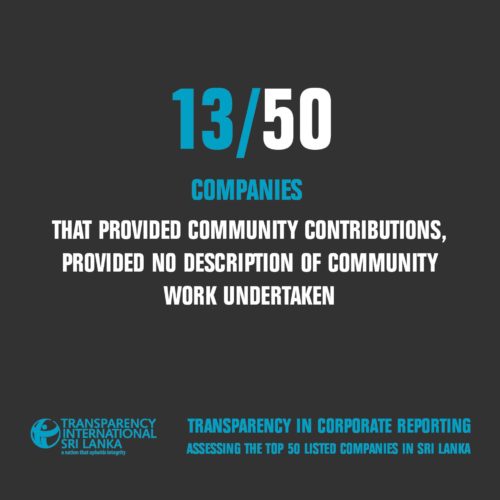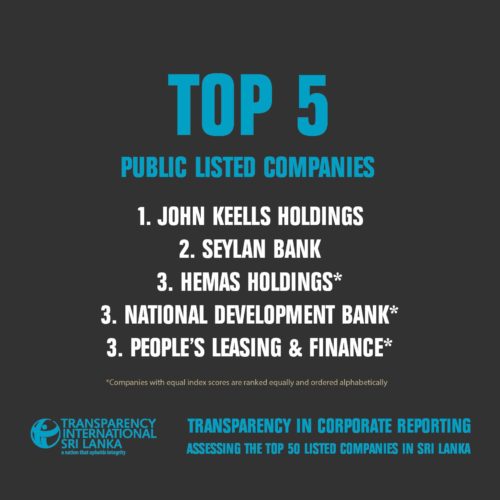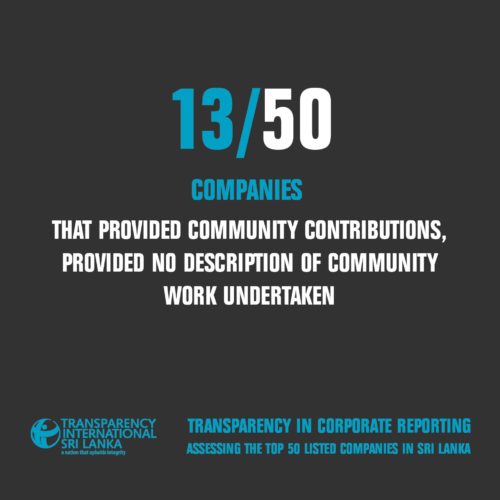


Transparency in Corporate Reporting (TRAC) 2020
Transparency International Sri Lanka (TISL) today launched Sri Lanka’s first ever assessment of transparency in corporate reporting amongst the top 50 listed companies on the Colombo Stock Exchange, as per market capitalization on 28 February 2019.
The report, “Transparency in Corporate Reporting (TRAC): Assessing the Top 50 Listed Companies in Sri Lanka”, ranks companies on three different thematic areas related to corporate reporting: anti-corruption programmes, transparency in company holdings and the disclosure of key financial information in domestic operations.
The research found that the average Top 50 listed company in Sri Lanka is moderately transparent with a score of 6.73 out of a possible maximum of 10. The companies which recorded the highest overall scores in the assessment are John Keells Holdings, Seylan Bank, Hemas Holdings, National Development Bank and People’s Leasing & Finance. Encouragingly, amongst the key findings of the assessment was the fact that the companies reviewed had an average score of 86% in reporting on company holdings, which is considered significantly transparent. Furthermore, 31 companies were found to be fully transparent in terms of their domestic financial reporting.
Speaking on the launch of the report, TISL’s Executive Director Asoka Obeyesekere said, “This report provides an opportunity to take stock of current disclosure practices, crediting the efforts that have already been taken and identifying areas for potential improvement “.
Information for the report was gathered from each company’s Annual Report by a team of TISL researchers. The selected companies were informed of the research being carried out and were requested to provide feedback on the preliminary findings, with publicly accessible information sources.
Obeyesekere added, “A low score does not mean there has been any wrongdoing, but rather illustrates an opportunity for improvement in disclosure practices. Likewise, a high score may illustrate strong disclosure systems, but this may not reflect operational and implementation success. The report seeks to provide a basis upon which a broader discussion can commence on normalizing transparency in corporate reporting”.
This endeavor marks TISL’s first foray into assessing transparency in the private sector. TISL is hopeful that this will provide an opportunity to work with the private sector, to incrementally improve transparency in corporate reporting.
